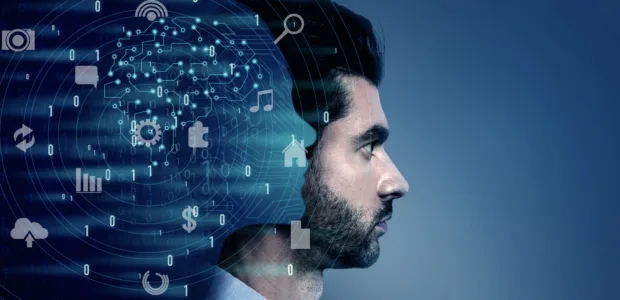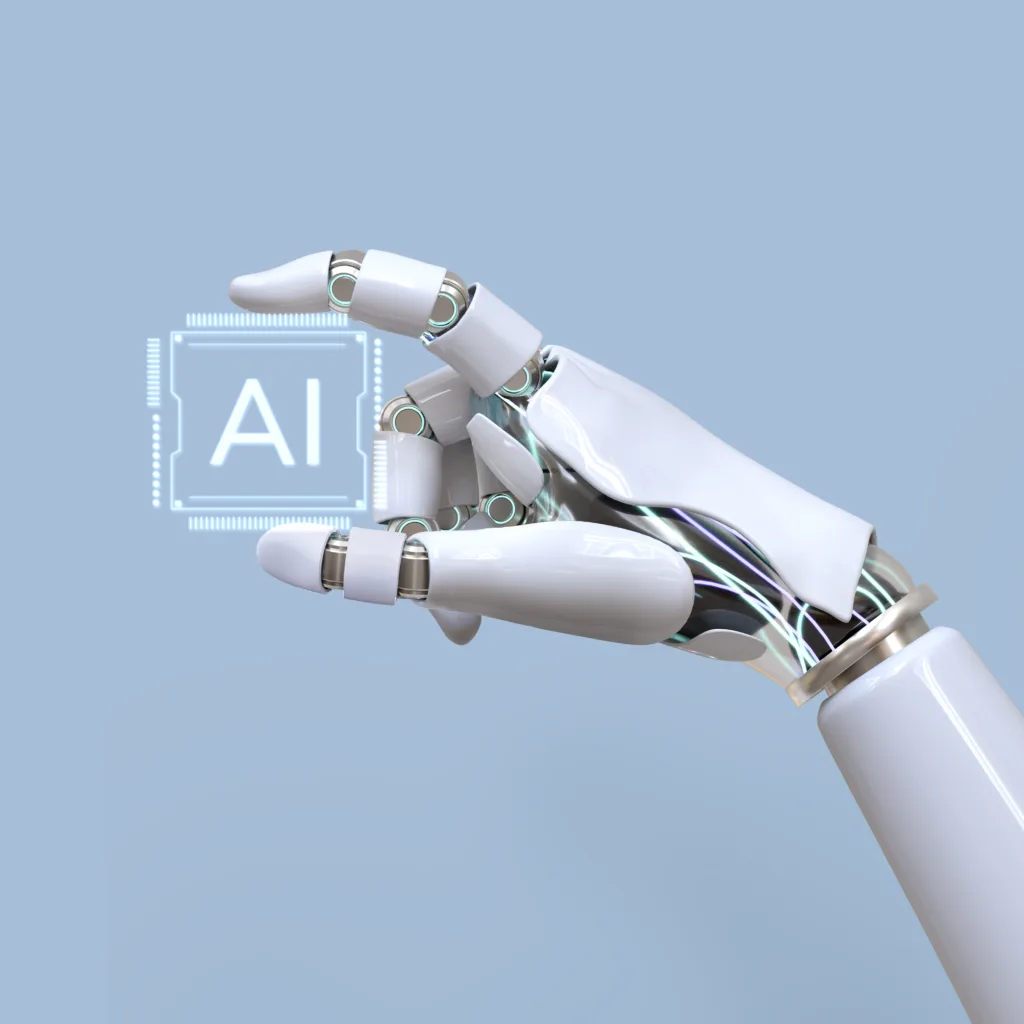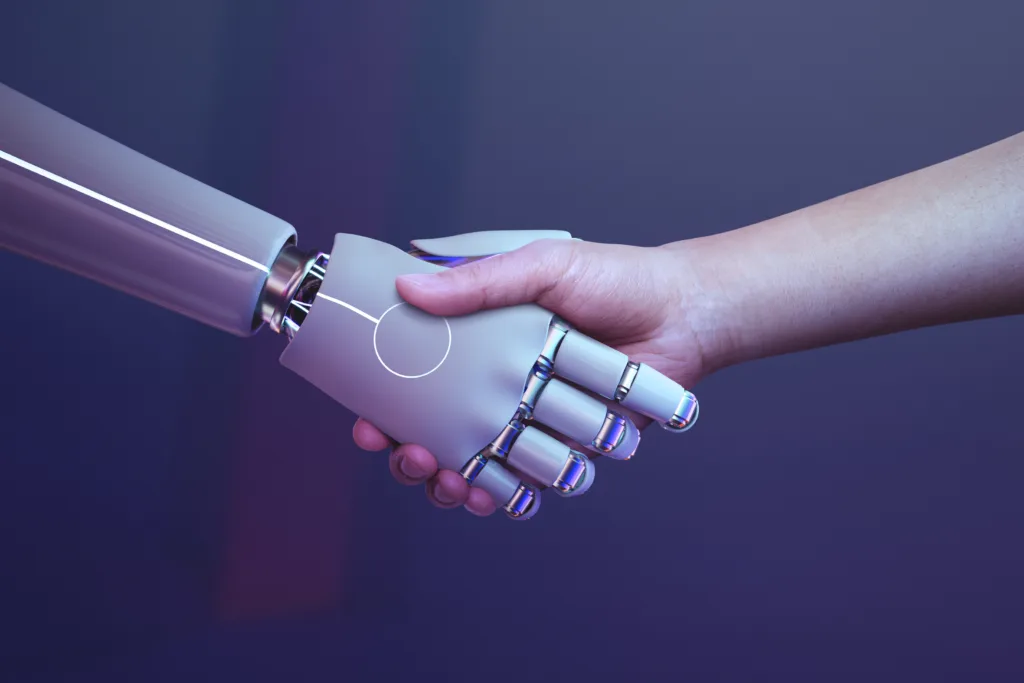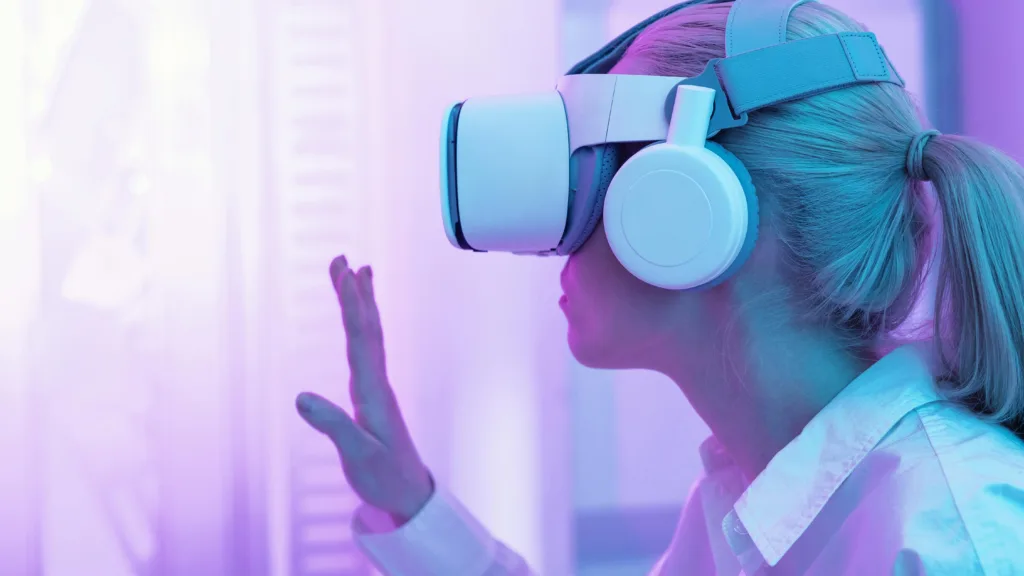
Introduction
Artificial intelligence (AI) has become one of our time’s most revolutionary and influential technologies.. From enhancing everyday tasks to revolutionizing entire industries, Artificial Intelligence has rapidly evolved and is changing the way we live and work. In this comprehensive blog, we will delve into the the revolutionary evolution Of AI, applications, benefits, and potential challenges of AI, as well as explore its future prospects.
The Revolutionary Evolution Of AI
The concept of AI dates back to ancient civilizations, where myths and tales featured humanoid automatons. The development of AI, however, did not really start until the middle of the 20th century. The term “Artificial Intelligence” was coined by John McCarthy in 1956, marking the birth of a new field. Rule-based systems and symbolic thinking dominated early AI.

Machine Learning and Deep Learning
One of the key breakthroughs in AI came with the development of machine learning. This approach allows machines to learn from data and improve their performance over time. Machine learning paved the way for deep learning, a subset of AI that employs neural networks to simulate human brain functions. Deep learning has enabled remarkable advancements in areas like image recognition, natural language processing, and autonomous vehicles.
Natural Language Processing (NLP)
Natural Language Processing is a subset of AI that focuses on enabling computers to understand, interpret, and generate human language. NLP powers chatbots, virtual assistants, and language translation services. It has applications in sentiment analysis, language generation, and even content summarization.
Computer Vision
Giving robots the ability to analyze and comprehend visual data from the outside environment is what computer vision entails. It has led to advancements in facial recognition, object detection, image generation, and autonomous vehicles. Computer Vision systems are used in medical imaging, surveillance, and even art generation.
Robotics and Automation
AI-driven robotics is transforming industries by enabling robots to perform tasks autonomously. From manufacturing and logistics to healthcare and agriculture, robots are becoming more capable and adaptable, enhancing efficiency and reducing human labor in various sectors.

AI in Healthcare
The Revolutionary Evolution Of AI is revolutionizing healthcare by analyzing vast amounts of medical data to diagnose diseases, predict patient outcomes, and recommend treatment plans. Machine learning models can identify patterns in medical images like X-rays and MRIs, helping doctors make accurate diagnoses. AI-driven wearable devices can monitor patients’ health in real-time and alert medical professionals in case of emergencies.
Autonomous Systems
AI is at the heart of developing autonomous systems, such as self-driving cars and drones. These systems rely on sophisticated algorithms and sensors to navigate and make decisions in real-world environments. They have the potential to make transportation safer, reduce traffic congestion, and revolutionize delivery services.
AI Ethics and Bias
As AI becomes more integrated into society, concerns about ethics and bias have come to the forefront. The Revolutionary Evolution Of AI algorithms can inherit biases present in the data they’re trained on, leading to unfair or discriminatory outcomes. Ensuring AI fairness, transparency, and accountability are critical challenges that researchers and policymakers are actively addressing.
AI in Creativity
AI is pushing the boundaries of creativity by generating art, music, and even literature. Generative adversarial networks (GANs) can produce realistic artworks, and AI-driven tools can compose music or even assist in writing novels. The distinction between human and automated material is becoming more hazy thanks to these apps.
AI in Finance
AI algorithms are transforming the finance industry by analyzing vast amounts of financial data, predicting market trends, and managing investments. High-frequency trading relies on AI to make split-second decisions, and robo-advisors use AI to provide personalized investment recommendations to clients.
Ethical Considerations and Regulation
The rapid advancement of the revolutionary evolution of AI has raised important ethical questions about its impact on privacy, security, and employment. Governments and organizations are grappling with the need for regulations that ensure responsible AI development and deployment. Balancing innovation with ethical considerations is essential to harness AI’s benefits while mitigating potential risks.
The Singularity and Beyond
The concept of the technological singularity, a hypothetical point where AI surpasses human intelligence, continues to be a topic of discussion and debate. While the singularity’s realization is uncertain, AI researchers and experts are consistently working towards developing advanced AI systems that can handle complex tasks and improve human lives.
Applications of Artificial Intelligence
AI’s applications span across numerous industries. In healthcare, AI aids in disease diagnosis and drug discovery. In finance, the revolutionary evolution of AI algorithms analyze market trends and manage investments. AI-driven chatbots enhance customer service interactions, while autonomous drones revolutionize logistics. Furthermore, AI-powered recommendation systems personalize user experiences in e-commerce and streaming services.
The Impact of Artificial Intelligence
The impact of AI on industries and society at large cannot be overstated. Automation driven by AI has improved efficiency, reducing manual labor and repetitive tasks. Businesses utilize AI to gain insights from big data, leading to informed decision-making. However, concerns about job displacement and ethical considerations have also arisen.
Benefits of Artificial Intelligence
The benefits of AI are far-reaching. In healthcare, AI assists doctors in diagnosing diseases with higher accuracy. The Revolutionary evolution of AI-driven algorithms in agriculture optimize crop yields and resource allocation. Smart cities leverage AI for energy conservation and urban planning. The use of AI in education enhances personalized learning experiences, catering to individual student needs.
Challenges and Ethical Considerations
Despite its potential, AI poses challenges. Ethical concerns surrounding AI’s decision-making processes and biases have sparked debates. Ensuring data privacy and security is paramount, given the sensitive information AI systems handle. As AI becomes more autonomous, questions about accountability and the “black box” phenomenon arise, emphasizing the need for transparent and explainable AI.
The Future of Artificial Intelligence
The future of AI holds boundless possibilities. Continued advancements in quantum computing may accelerate AI’s capabilities even further. The revolutionary evolution of AI-driven healthcare could lead to personalized treatments tailored to individuals’ genetic profiles. Moreover, AI may play a pivotal role in addressing global challenges like climate change through data analysis and prediction.

Conclusion
The Revolutionary Evolution of AI has evolved from a concept into a reality that permeates various aspects of our lives. Its applications have transformed industries, improved efficiency, and enriched human experiences. However, as we embrace AI’s potential, it’s crucial to address ethical concerns and ensure responsible development. The future of AI is promising, offering solutions to complex problems and enhancing our understanding of the world.
Artificial Intelligence is a dynamic and rapidly evolving field with profound implications for various industries and aspects of society. From healthcare and finance to creativity and autonomous systems, AI is reshaping how we live and work. However, with its transformative power comes the responsibility to ensure ethical development and address potential challenges. As the revolutionary evolution of AI continues to advance, its future remains both exciting and thought-provoking.
Read Article : Benefits of CBD Oil
Pingback:Top 10 Affiliate Programs In The US
Pingback:Best Features Of ChatGPT In The Modern Era 2024